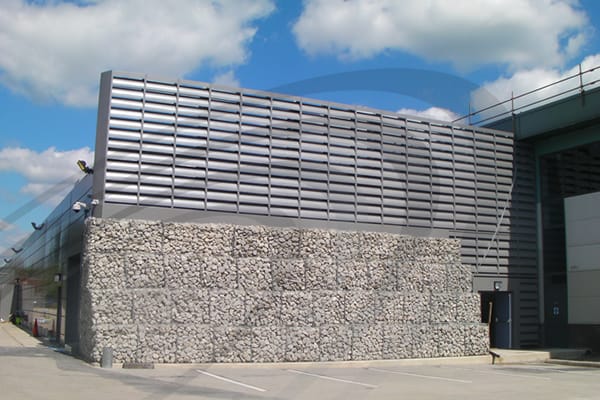If you’ve ever looked into soundproofing solutions, you’ve probably come across sound barrier sheets. Promising to block out noise and create a more peaceful environment, they’ve become a popular choice for homeowners, businesses, and even DIY enthusiasts. But do these sheets live up to the hype? Are they truly as effective as manufacturers claim, or is it just clever marketing?
What Are Sound Barrier Sheets?
Sound barrier sheets are flexible, dense materials designed to block sound transmission between spaces. They’re typically made from materials like mass-loaded vinyl (MLV), which combines high mass with flexibility, making it an excellent option for stopping airborne noise. Unlike acoustic foam, which absorbs sound to reduce echoes, sound barrier sheets are focused on blocking noise entirely.
They’re often used in walls, ceilings, floors, and even windows to prevent noise from entering or leaving a space. Their versatility is one of their biggest selling points—you can hang them as curtains, install them behind drywall, or even lay them over noisy machinery.
How Do They Work?
The key to sound barrier sheets lies in their density. Sound waves, much like water, need pathways to travel. The heavier and denser the material, the harder it becomes for sound waves to pass through.
Think of it this way: when you yell into a pillow, the sound is muffled because the material disrupts the path of the sound waves. Sound barrier sheets operate on a similar principle but on a much larger scale and with far more effectiveness.
These sheets are particularly good at blocking low-frequency noises, like traffic, bass-heavy music, or machinery, which can travel easily through thin walls or open spaces.
Benefits of Sound Barrier Sheets
If you’re considering sound barrier sheets, here are some of their standout benefits:
1. Ease of Installation
Unlike full-scale renovations or permanent soundproofing solutions, sound barrier sheets are relatively easy to install. Many sheets come with adhesive backing or grommets, making them a straightforward DIY project. You can cut them to size and place them exactly where you need them, saving time and effort.

2. Versatility
These sheets can be applied to walls, ceilings, floors, doors, and windows. Some people even use them to cover noisy appliances or as a temporary fix for noise complaints. Their flexibility makes them suitable for homes, offices, studios, and even industrial spaces.
3. Cost-Effective Solution
Compared to other soundproofing methods, a sound barrier sheet is an affordable option for blocking noise. While not necessarily cheap, their ability to reduce noise significantly without requiring construction work can save you money in the long run.
4. Portable and Adjustable
Because they’re not a permanent fixture, you can move them around as needed. If you change apartments or want to shift them to another noisy spot, they’re easy to relocate.
Potential Drawbacks of Sound Barrier Sheets
As effective as they are, sound barrier sheets do have some limitations.
1. Limited Aesthetic Appeal
Let’s face it—most sound barrier sheets aren’t the prettiest thing to hang in your home. They’re often black or grey and can look industrial or out of place in a cosy living room. However, this can be mitigated by covering them with fabric or incorporating them into your décor.
2. Effectiveness Depends on Installation
Poorly installed sound barrier sheets can leave gaps or weak points that allow sound to leak through. For maximum effectiveness, they need to be tightly sealed, especially when installed on walls or doors. Even the tiniest gap can significantly reduce their performance.
3. Heavy Weight
The very thing that makes these sheets effective—their density—also makes them heavy. This can make installation challenging, especially on ceilings or large wall areas.
4. Not a Cure-All Solution
While they’re great at blocking airborne noise, sound barrier sheets might not solve issues with structure-borne noise, like vibrations from footsteps or machinery. For those types of noise, additional solutions like damping materials or decoupling techniques may be required.
Are They Really Effective?
Now, the big question: do sound barrier sheets live up to their claims? The answer largely depends on the type of noise you’re dealing with and how well the sheets are installed.
When used correctly, sound barrier sheets can significantly reduce airborne noise, making them an excellent choice for blocking sounds like:
- Traffic noise from outside
- Voices or music from neighbouring rooms
- Loud appliances like washers or generators
However, they work best as part of a broader soundproofing strategy. Pairing them with other techniques, such as sealing gaps, using soundproof curtains, or adding insulation, can boost their effectiveness.
Tips for Getting the Most Out of Sound Barrier Sheets
If you’re planning to use sound barrier sheets, here are a few tips to maximise their performance:
1. Seal Every Edge
Sound can sneak through even the smallest gaps. Make sure to seal the edges of your sound barrier sheets with acoustic caulk or adhesive tape to prevent leaks.
2. Layer for Better Results
For particularly noisy areas, consider layering sound barrier sheets with other materials, like drywall or foam. This creates a more comprehensive soundproofing system.
3. Combine with Other Solutions
Don’t rely on sound barrier sheets alone. Adding rugs, heavy curtains, or wall panels can complement the sheets and enhance overall soundproofing.
4. Position Strategically
Focus on areas where sound enters or exits your space the most. Doors, windows, and shared walls are often the main culprits for noise intrusion.
Final Thoughts
Sound barrier sheets can be an effective and versatile solution for managing unwanted noise. They’re a fantastic option for beginners, offering an easy-to-install and portable way to improve soundproofing in almost any space.
However, like any tool, they work best when used correctly and in the right context. While they won’t solve every noise problem, they can make a noticeable difference, especially when paired with other soundproofing techniques. If peace and quiet are what you’re after, sound barrier sheets are definitely worth considering.











